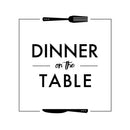What if...
 From July this year the National Disability Insurance Scheme (NDIS) will be rolled out across NSW. This scheme represents a major shakeup of how support services have been provided to date for people with disabilities and their families.
From July this year the National Disability Insurance Scheme (NDIS) will be rolled out across NSW. This scheme represents a major shakeup of how support services have been provided to date for people with disabilities and their families.
The NDIS is a radical and positive step forward for people with disability, empowering them to have a greater say in choosing and purchasing supports that fit with their goals, values and beliefs. In short, it is designed to enable people with disability to achieve their goals across all aspects of their lives, including independence, community engagement, employment, education and health and wellbeing.
The NDIS is also committed to working with families and carers to ensure the support they provide can be sustained over the long-term. Informal support, for all of us, is a big deal. Imagine where you'd be without the support of the important people in your life (however much they might drive you nuts from time to time).
In 2015, Deloitte Access Economics looked into the economic value of informal caring for people with disability, mental illness, and chronic or aged-related health conditions. They estimated that family and friend carers provide $60.3 billion in unpaid care every year. That's more than $1 billion every week!
It seems to us that there is an imperative to support people with disability as well as the people who support them. So where does this leave us at Dinner on the Table?
Here's what we know: all of us need to eat dinner. Every. Single. Day.
Here's what we think: having a good dinner, done for you, gives you time and energy to do things that are important to you: caring, working, studying, playing.
Here's what we wonder: what if the NDIS recognised that dinner for a household isn't just about the meal itself? It's also about the time and energy saved thinking, planning, shopping, cooking, and cleaning up, whoever takes that responsibility for a household. What if we've cracked onto a big idea: dinner supports a person with a disability as well as those who support them?
Tell us your ideas on this: what does having dinner done mean for you? We'd love you to comment below.
Would you also share this blog with your friends, your family, people you know with disability, people you know who provide support for people with disability? We would love to hear many different viewpoints.
We want to start a conversation... but we can't talk to ourselves.
Tags:
carer,
Carers Australia,
changedailylives,
delivery,
dinner,
disability,
family,
NDIS,
socent,
social enterprise,
Sydney
Other articles:
Quick links
Home Home Delivery Meals How it works Meal Delivery Info Contact us Blog Search About us Privacy policy Karen Will Cater
Contact us
About us
We exist to care for you through really good food. Whether it's your weeknight family meal, your big life celebrations or your large corporate events, we'd love to cook for you.
And together, we can change the daily lives of families living with disability. Find out about our social mission here.
